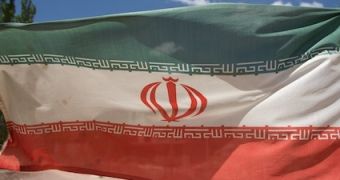There's one thing you can say about oppressive regimes, they don't give up easily. The fact that the cat and mouse game never ends doesn't seem to faze them too much. Case and point, there are now reports that the Iranian government has blocked Gmail in the country ahead of expected protests set for today, February 11 which marks the 31st anniversary of the Islamic Republic. But there's a bright side, the government is planning to offer its very own email system (Imail?) complete with complimentary backdoor access to all your 'private' conversations.
Multiple reports indicate a wide lockdown on communications in the country's capital Tehran, where the opposition movement is strongest. Internet connections are especially slow and text messages are either late or don't get through at all. There's also a much stronger police presence on the streets and people are getting checked especially in areas where protests have started before.
All of this is meant to counter the expected protests organized by the opposition which is rallying people to go out into the streets. The government holds festivities and celebrations every year on February 11, so a lot of supporters of the current regime are also expected to be on the streets making clashes inevitable.
Put in perspective, the Gmail block is more like a drop in the bucket. Email is certainly a useful tool and a lot of people do use it in Iran, but certainly not to a degree which would make a difference on a grander scale. Much more worrisome is the block on mobile text messages, a form of communication a lot more common in developing parts of the world.
Iran has been known to block internet services on occasions. Last year for the Islamic Revolution, FriendFeed was blocked in the country so it's only fitting that the newly launched FriendFeed clone from Google, Buzz for Gmail should be blocked this year. During the presidential elections and subsequent riots and protests in June, several internet services were also disrupted. Twitter was then used by protesters to communicate with the outside world and, to a lesser degree, to organize the protests. There are no indications that Twitter is currently blocked in the country.

 14 DAY TRIAL //
14 DAY TRIAL //